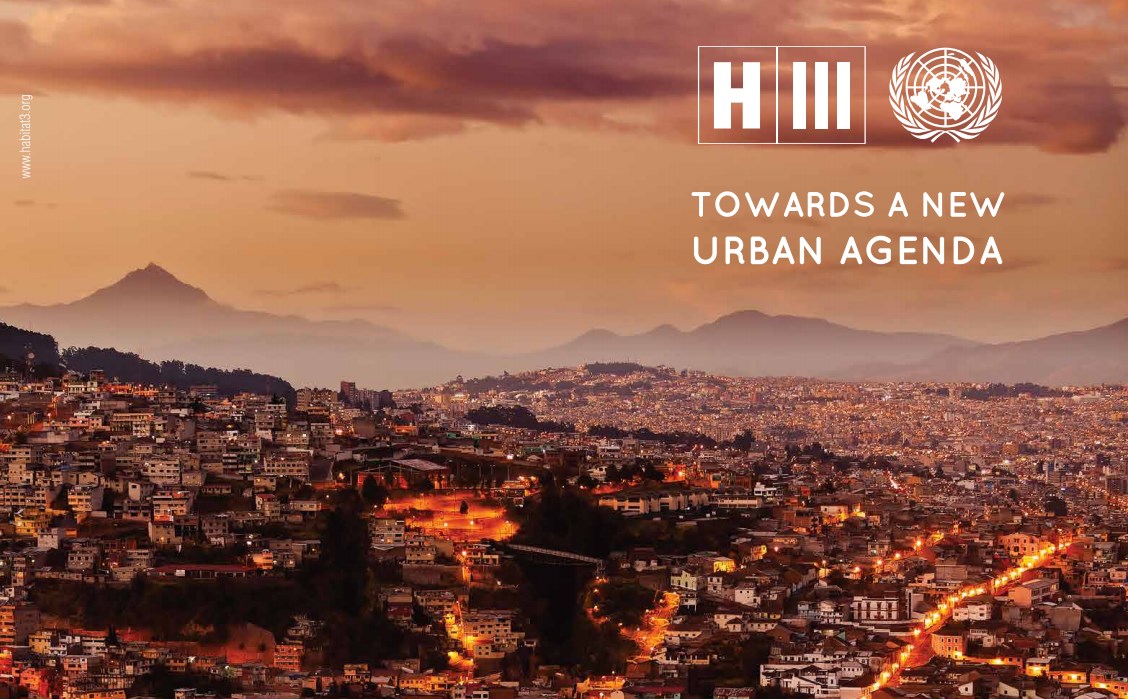
Global policies director Marcio Deslandes represented ECF/WCA in Surabaya in preparation for the New Urban Agenda
People around the world are migrating faster and faster towards urban areas. Nowadays, more than 50% of the world’s population live in cities and, if it goes on like this, more than 75% of the population will be living in urban areas by 2050. Although cities are a great hub for social, educational and economic movements, it can also be a hub for lots of problems if it does not follow a sustainable development pattern.
On that note, UN Habitat organises every 20 years the Habitat conference. After Vancouver in 1976 and Istanbul in 1996, this year Habitat III conference will be organised in Quito, Ecuador to launch the New Urban Agenda - a framework document on sustainable urban development agreed by the UN member states, as guidelines for urban development policies for the next 20 years. In order to have cycling well represented in the document, ECF/WCA has been playing an active role in the preparatory committee meetings of the conference and in the negotiations of the document with UN member states and other stakeholders in the process. The main challenge of the document is that Habitat III has to bring up an innovative action plan that has to follow up on the previous global processes: COP 21 and Global Goals. However, it cannot only limit itself to the Goal 11 – sustainable cities and communities – or to climate change issues, but has also to show great ambition for changing urban settlements.

From the 25th to the 27th of last July, the Habitat III community got together in Surabaya, Indonesia for the last meetings on the negotiations of the New Urban Agenda involving all the partners of the process. According to the last draft document published after the negotiations during the Preparatory Committee 3 in Surabaya, we should celebrate that cycling, mobility and access to the city are well mentioned in the document in its full potential.
In order to have an overall view of the process towards Habitat III, it is important to know that building on two previous Preparatory Committees and on policy units and issue papers, the first draft of the New Urban Agenda was launched last April in New York. Since then, all the stakeholders, including ECF/WCA, have been participating in negotiations with UN member states to finalize the document to be signed in Quito in October.
In order to be an active stakeholder in the process, and to make sure that cycling is relevant to the New Urban Agenda, ECF/ WCA have become partner of the World Urban Campaign – a campaign of UN Habitat to gather partners from different areas to work together for a better urban future. Apart from that, ECF has status to be a direct stakeholder of the Habitat III process. That enabled us to have a direct voice on the plenaries of the preparatory committees, to organise side events and to present the benefits of cycling not only as transport but also as a multifold tool for sustainable urban development, as clearly pictured in the paragraph below from the actual draft of the New Urban Agenda.
We will adopt, implement, and enforce policies and measures to actively protect and promote pedestrian safety and cycling mobility, with a view to broader health outcomes, particularly the prevention of injuries and non-communicable diseases, and we will develop and implement comprehensive legislation…"
The lines above picture only one sentence where cycling is explicitly in. In the draft documents issued so far, cycling was mentioned 5 times in the first zero draft, then it got cut down to 3, back to 4 and now, back to 5 times in the latest version launched after ECF/WCA participation in the Preparatory Committee 3 in Surabaya. We are happy to see cycling so relevantly mentioned in one of the Global UN Processes. Once the New Urban Agenda is agreed and signed by all the UN member states, the world’s cycling community will have available a relevant global document to support advocacy work in cycling promotion.
For further reference, check the latest draft of the New Urban Agenda.
Prepared by Marcio Deslandes, Velo-city Series and Global Policies director.
Regions:
Network/Project Involved:
Contact the author
Recent news!
Upcoming events
Contact Us
Avenue des Arts, 7-8
Postal address: Rue de la Charité, 22
1210 Brussels, Belgium









